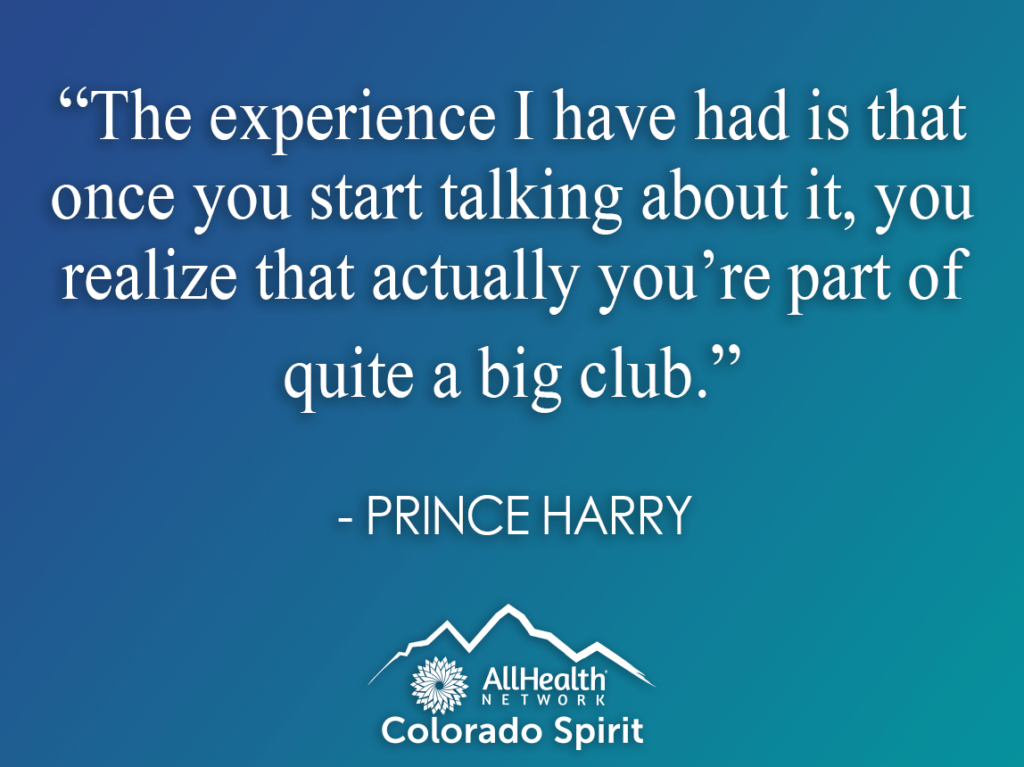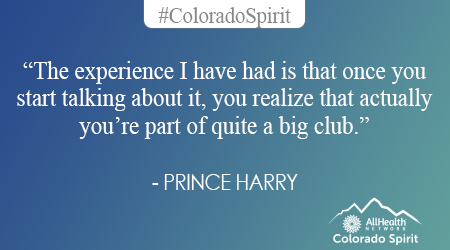In the United States, September is a month when many community organizations bring attention to suicide prevention. Numerous walks, social media campaigns, and community events bring people together to both share and receive support.
We not only encourage everyone to think about how to support their friends and family and to reduce stigma, but also to remember and honor those who have lost their lives to suicide.
Suicide Prevention in a Pandemic
Suicide Prevention Awareness Month during a pandemic is different though. These events have been transitioned to online or are modified in some other way (see American Foundation for Suicide Prevention’s Denver page for information about the Denver Metro Area Drive to Fight Suicide).
The goals remain the same, however: to address stigma around suicide and mental health issues and to support others.
With people facing unprecedented strain during the pandemic, we think suicide prevention awareness is even more critical. A recent CDC survey found “Elevated levels of adverse mental health conditions, substance use, and suicidal ideation were reported by adults in the United States in June 2020” with 40.9% of people who were surveyed reporting at least one adverse behavioral health condition. The striking thing about this survey is that it has been conducted at a regular interval, so researchers were able to compare this year’s results to past years. The 2020 findings indicate significant increases in reported symptoms when compared to 2018 and 2019. Anna Medaris Miller with Insider does a good job breaking down some of these results.
While the pandemic continues to create increased strain, it is also simultaneously putting mental health and suicide prevention at the forefront of people’s minds. A new national survey found that a majority of the 2,000 people surveyed said that “as a result of the pandemic, it’s more important than ever to make suicide prevention a national priority.”
As a result of the pandemic, it’s more important than ever to make suicide prevention a national priority. – from the majority of a 2000 person national survey
What can We do?
Here are some tips that we can do this month (and others!) to support ourselves and others and how we can help reduce stigma:
- Recognize risk factors and warning signs of suicide
- Connection and communication is vital. If you are worried about someone, say something to them!
- It is a myth that asking someone if they are thinking about killing themselves will put the idea in their head. We know that thoughts of suicide are more common than many of us might think, and that a caring and trusted other giving us space to openly talk about what we are going through helps tremendously!
- For lots of us, this approach of direct questioning can feel uncomfortable. The good news is there are supportive resources to help us feel more comfortable asking people we care about if they have thoughts of suicide.
- The 5 Steps from the BeThe1To Campaign
- CARE – Connect, Ask, Respond, Empower from The Trevor Project
- Consider if an online training around suicide prevention might be helpful. Two great options are QPR and LivingWorks Start . These trainings do have a fee associated with them and are meant to help anyone develop comfort asking life-saving questions about thoughts of suicide and to help people link individuals with more support if needed.
- Ask for coaching by reaching out to the Colorado Crisis Hotline at 1-844-493-8255 (TALK) or text TALK to 38255. While this team can be a support to anyone in crisis, they can also help friends and family think through how to best support their loved ones.
- Keep social connections strong. We have mentioned time and time again how social support is invaluable for navigating stressful times. Whether the stress is related to the pandemic, a mental health issue, or thoughts of suicide, social connections are a protective factor. Mental Health America offers these helpful tips about getting social support and the National Center for PTSD offers these tips on providing support to others.
- Continue to engage in your own stress management routine and encourage others to do the same.
- Be mindful of substance use. Mood altering substances can lower inhibitions and create more impulsive behavior. For many of us, that means we might be more at risk of acting on thoughts of suicide while under the influence of a substance.
Spread the message that no one is alone
Almost every single person I have ever talked with who has had thoughts of suicide or made a suicide attempt has felt alone in their struggle. Letting people know they are not the only ones who are struggling and have had thoughts of suicide can go a long way. Reminding ourselves of this, can be powerful too.
Would speaking to someone help?
AllHealth Network, along with other community mental health centers, is continuing to provide services via telehealth and by phone. Our Crisis Walk-in Center remains open 24/7 and offers in-person care to those experiencing a mental health crisis. For more information and to get connected with our services, please call 303-730-8858. To learn more about what other community mental health centers are doing, please visit the Colorado Behavioral Health Council COVID-19 website.
If you are experiencing a mental health crisis and are in need of immediate assistance, please call the Colorado Crisis Hotline at 1-844-493-TALK (8255) or text TALK to 38255
How do you know if you’re experiencing a mental health crisis? Click here to learn about mental health crisis warning signs to look out for from the National Alliance on Mental Illness (NAMI)



